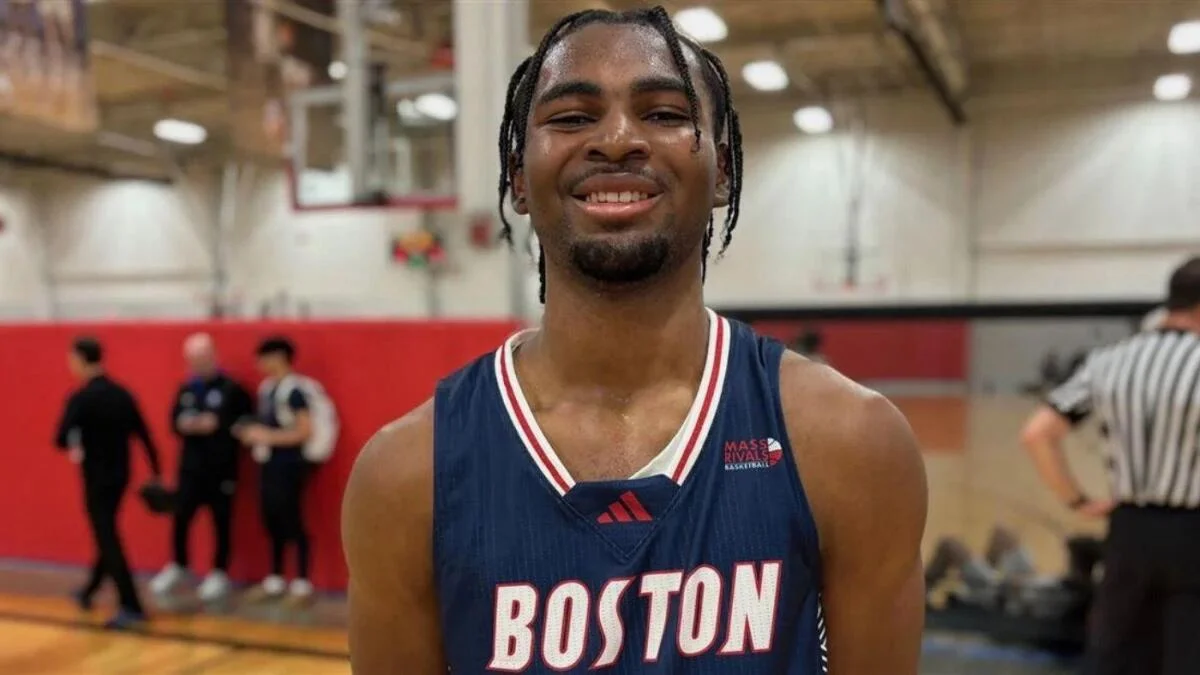Four-Star Power Forward Sebastian Wilkins Commits to Duke Basketball and Reclassifies to 2025, Strengthening Blue Devils’ Future Frontcourt
Duke basketball has secured a major addition to its future frontcourt with the commitment of four-star power forward Sebastian Wilkins, who announced not only his pledge to the Blue Devils but also his decision to reclassify from the 2026 recruiting class to 2025. The move comes as a significant boost for head coach Jon Scheyer and his staff as they continue to build on their momentum following back-to-back strong recruiting cycles.
Wilkins, a 6-foot-8, 210-pound forward from Atlanta, Georgia, had been rising steadily in national recruiting rankings before his reclassification. A player known for his explosiveness, two-way versatility, and basketball IQ, Wilkins had recently drawn increased attention from high-major programs across the country. But in the end, it was Duke that separated itself, both through its track record of player development and its personalized recruitment approach.
The commitment is noteworthy not only for its immediate implications but for what it says about the long-term trajectory of the Duke program under Scheyer. Wilkins’ decision to reclassify means he will now join the Blue Devils a year earlier than expected, bringing his skill set to Durham just in time to potentially make an impact in the 2025-26 season. His addition also reflects a growing national consensus that Duke remains one of the most attractive destinations for elite talent looking to both win at the college level and prepare for the NBA.
Wilkins had recently visited Duke’s campus and came away impressed by both the facilities and the team culture. By all accounts, it was the visit that sealed the deal. He cited conversations with Scheyer and his staff—particularly assistant coach Jai Lucas—as pivotal in building the trust and vision necessary to make the leap both in commitment and academic acceleration.
“My heart told me Duke was the right place,” Wilkins said in a statement announcing his commitment. “The coaching staff believes in me, and I believe in what they’re building. I want to compete against the best and help Duke win at the highest level.”
Ranked among the top 40 overall prospects in the class of 2026 before reclassifying, Wilkins now slots into the top-60 range for 2025 and could rise further with a strong summer circuit. His recruitment had included interest from Georgia, Alabama, Florida State, and Auburn, but Duke’s combination of prestige and player development history stood out.
Wilkins is a physically gifted forward with a high motor. He thrives in transition, finishes strong at the rim, and has a burgeoning perimeter game that includes an improved three-point shot and solid passing ability. On defense, he brings switchability and shot-blocking potential, attributes that fit well with Duke’s evolving emphasis on positionless basketball.
What makes Wilkins especially appealing is his versatility. He can play as a small-ball center in certain lineups, stretch the floor as a modern four, or even serve as a mismatch nightmare in the high post. His game has been compared by some scouts to that of former Duke standout Wendell Carter Jr., though Wilkins may be a bit more agile in the open floor and more fluid on the perimeter at this stage of his development.
For Duke, Wilkins’ reclassification to 2025 also helps balance out the roster. The Blue Devils have been aggressive in targeting top-tier talent but have also faced the reality of one-and-done departures and players leaving early for the NBA. By bringing Wilkins in a year early, the program ensures additional frontcourt depth and a player who will be positioned to contribute early, especially if the current roster sees expected turnover.
This commitment also reinforces Duke’s national recruiting presence. While Scheyer has emphasized a more balanced blend of prep recruiting and portal acquisitions in recent cycles, securing a blue-chip prospect like Wilkins from outside the traditional ACC footprint illustrates the enduring strength of the Duke brand. It’s another win in what has become a highly competitive recruiting landscape, especially with NIL considerations and the transfer portal reshaping roster-building strategies across college basketball.
Duke has already assembled one of the strongest incoming classes for 2025, and Wilkins only adds to that. His presence gives the Blue Devils another frontcourt building block alongside fellow 2025 commits, and the possibility exists that more top-tier recruits will follow now that Wilkins has gone public. As is often the case in recruiting, momentum builds upon itself—and Duke’s latest addition could serve as a catalyst for further commitments in the coming months.
Wilkins also brings with him a family pedigree that has helped shape his basketball foundation. He is the son of former Georgia Tech standout and NBA veteran Damien Wilkins and the grandson of NBA Hall of Famer Dominique Wilkins. The basketball lineage is unmistakable, and while Sebastian has worked to forge his own path, he has undoubtedly benefited from the wealth of knowledge passed down from his family.
“He’s got great people in his corner, and that’s helped him develop into a young man who understands the work it takes to be great,” said one AAU coach familiar with Wilkins. “He’s got a pro’s mindset already, and he’s only going to get better once he’s in a college environment like Duke’s.”
For Jon Scheyer, the Wilkins commitment is another clear example of the staff’s recruiting acumen and its ability to connect with high-character players who fit the Duke mold. Since taking over for Mike Krzyzewski, Scheyer has continued to evolve the program’s approach, blending innovation with tradition. That balance is evident in the way Duke has remained a premier recruiting power while also adapting to the new realities of college basketball.
Wilkins’ decision to reclassify is not one made lightly. It requires not just athletic readiness but also academic diligence and maturity. Reclassifying often means accelerating coursework, foregoing a year of high school basketball, and stepping into a more competitive environment earlier than planned. That Wilkins and his family felt comfortable with that move speaks volumes about his readiness and Duke’s ability to support that transition.
The Blue Devils are expected to have a number of frontcourt departures after the 2024-25 season, either through the NBA Draft or transfer portal, and Wilkins should be in prime position to compete for minutes right away. His physical tools and work ethic suggest he won’t be content to sit and wait. If anything, those around him suggest he thrives in environments where he is challenged to earn his place.
In the modern era of college basketball, securing commitments like Wilkins’ is no small feat. Programs are not only competing against one another but also against the professional options that some elite high school players are increasingly considering, such as the G League Ignite (which is now set to shut down but had been a factor in recent years), international opportunities, and new NIL-influenced alternatives.
That Wilkins chose to go the college route, and to do so at a place like Duke, reinforces the value that the Blue Devils still provide to elite prospects. Between development, exposure, competition, and academic support, the program remains a premier launching pad—and players like Wilkins see it as such.
With Wilkins now part of the fold, Duke’s 2025 class continues to shape up as one of the strongest in the country. As the Blue Devils eye a deep run in the 2024-25 season, they can do so with the comfort of knowing that the pipeline of talent continues unabated. Scheyer and his staff are not just recruiting at a high level—they’re building a sustainable future grounded in both talent and culture.
Wilkins, for his part, is eager to get started. “I’m ready to get to work,” he said. “This is a dream come true, but it’s also just the beginning. I want to be great, and I believe Duke is where I can make that happen.”
For Duke fans, Wilkins’ commitment is another reason to be optimistic—not just about the present, but about the future of a program that remains as relevant and powerful as ever in college basketball’s ever-changing landscape.



